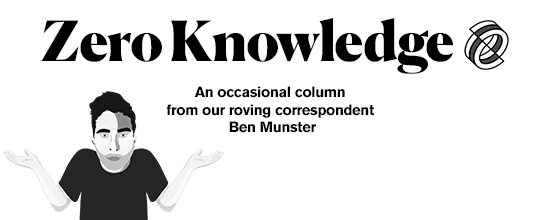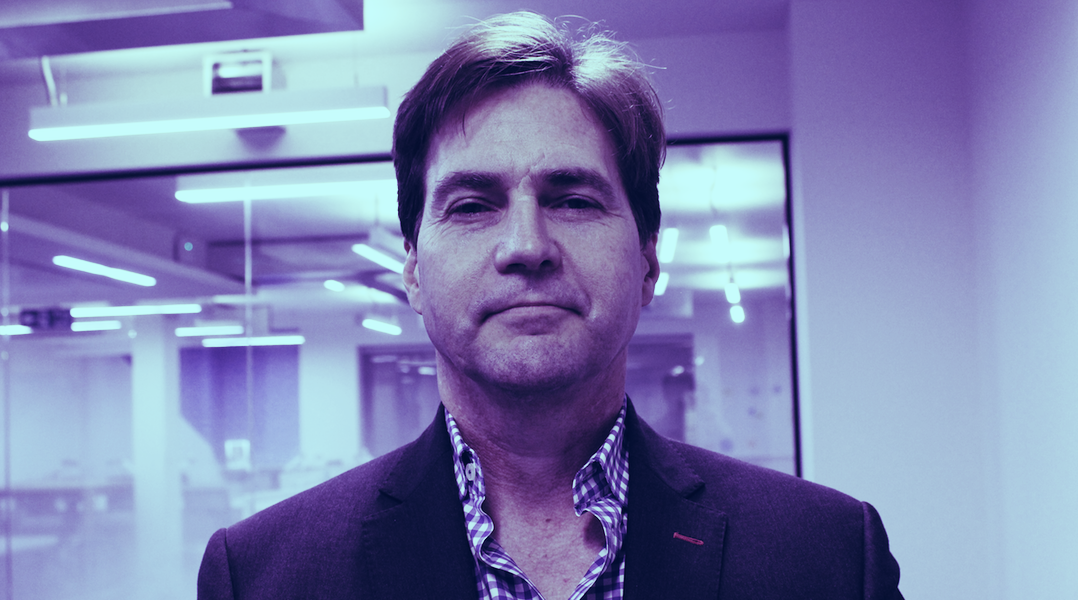Craig Wright Didn’t 'Win' Anything
Except a lot of undeserved attention.
Craig Wright claims to have invented Bitcoin under the pseudonym Satoshi Nakamoto. Image: Decrypt

It takes time to build a press operation so effective that you can chalk up a $100 million legal fine as a victory—but Craig Wright, the Australian computer scientist who claims to be the inventor of Bitcoin
, managed to pull it off.
On Tuesday, Wright, 51, was compelled to pay $100 million to a business venture called W&K Info Defense that he set up with the late developer Dave Kleiman.
In early 2018, Kleiman’s brother Ira sued Wright in a Miami court, a few years after Wright debuted the claim that he invented Bitcoin. Ira alleged that Wright designed the Bitcoin protocol with Dave under the pseudonym Satoshi Nakamoto, but also that Wright misappropriated a large portion of the early Bitcoins he and Kleiman supposedly mined (currently worth around $50 billion) and to which the Kleiman estate was entitled. For the sake of the Miami trial, both sides appeared to agree that Wright was one of the people behind the famed inventor, so the court didn’t press the issue.
Ultimately, the jury determined that Wright hadn’t stolen from the duo’s mining operation, and Wright wasn’t made to shell out billions. The court did, however, order Wright to pay the joint business venture $100 million in damages related to “conversion,” the misuse of another’s property.
The top 5 crypto news stories & features in your inbox each day.
Swiftly, Wright’s formidable press machine—particularly an outlet called CoinGeek that regularly leaps to his defense—rumbled into action, with outlets as prodigious as the BBCreporting that Wright won the “right to keep billions of dollars.” The Telegraph’s headline shouted: “I am Satoshi Nakamoto: Self-proclaimed inventor of bitcoin prevails in legal case.”CNBC got roasted for its first headline: “Miami jury rules in favor of Craig Wright, finding him to be the sole inventor of bitcoin.” The site later corrected it.
This case wasn’t about whether Wright is Satoshi. The case was strictly about whether Wright misappropriated billions of dollars in Bitcoins from the joint venture with Kleiman; the jury ruled he did not. That was the “big win.” But Wright was still slapped with a $100 million judgment, a small fact that multiple papers dismissed as insignificant in the context of his purported multi-billion dollar fortune, which may not even exist.
Craig Wright, who claims he is Bitcoin inventor Satoshi Nakamoto, is off the hook for a multibillion-dollar payment to the estate of computer scientist Dave Kleiman, which argued that the men ...
Wright’s press team has a history of spin. In 2019, for instance, Wright registered a copyright for the Bitcoin white paper, claiming it amounted to “government recognition” that he was Satoshi. Though that was quickly undermined when another person filed their own copyright within days, Wright, in an email sent to me at the time, remained steadfast: “Now we can both show our credentials and see who ends up wearing an orange suit!” (False registrations bring only a $2,500 fine.) Or, similarly, when a libel case brought by Wright against Bitcoin evangelist Roger Ver was thrown out in court, Ed Pownall, Wright’s PR flack, assured me that the case was “only thrown out because of jurisdiction, not the content.” (That case was ultimately thrown out a second time.)
And yet, the latest round of credulous reporting shows the degree to which Wright’s team has succeeded in manifesting a new reality in which all events serve only to vindicate Craig Wright.
If you believe Wright is Satoshi, then you are not bothered by his alleged backdating of blog posts; his dissembling in court; his profligate legal threats which seem to frequently fall by the wayside; his inability, in 2016, to prove he is Satoshi using the original private keys.
You would think that of all the places on the internet, you’d be able to read the Bitcoin whitepaper on Bitcoin.org. For Brits, that won’t be possible for much longer. Dr. Craig Wright, the s...
If you believe Wright is Satoshi, you also believe that he is in possession of that vast Bitcoin fortune. Which means that the $100 million he owes Kleiman is truly a pittance, relative to what he supposedly has. So when the Guardianannounces that he has won the case, you will nod enthusiastically. It will also lead you to a somewhat circular conclusion: that the outcome of the trial, as The Telegraph put it, “shows [Wright] is the mysterious inventor of Bitcoin.”
The faulty logic here is concluding that the damages awarded to the Kleiman estate imply some kind of courtly recognition that Wright is Satoshi. Wright himself told Bloomberg, “The jury has obviously found that I am [Satoshi Nakamoto] because there would have been no award otherwise. And I am.”
You could even say it would’ve been better for him if he had been fined the full $50 billion—a sum to which only Bitcoin’s true inventor would have access.
This take requires you to ignore the obvious ethical implications of Wright’s argument: that he stole from an ailing man who considered him a friend. Beyond that, the fact that Wright was made to pay damages doesn’t amount to confirmation that he is Satoshi because, as D.C. blockchain attorney Stephen Palley tells Decrypt, “the court proceeded from the premise that it did not need to decide who Satoshi was, and the jury did not decide that issue either.”
From this perspective, the trial played out as a series of precarious bluffs, a game of legal chicken in which these basic facts of Kleiman’s lawsuit went unexamined. (The focus of the case was the duo’s business relationship, interrogated through emails surfaced in discovery.) In this interpretation of events, Wright staked his reputation on being Satoshi; Kleiman claimed Satoshi owed him money; neither man could back down, so the case proceeded on false grounds. It is really weird, when you think about it, that a years-long trial may well have proceeded from a financially useful but highly disputable “fact” agreed between plaintiff and defendant. So the jury’s verdict wasn't "recognition" by any stretch of the imagination—Wright's Satoshi claims were not up for vindication.
This would also mean that Wright does not have the vast fortune alleged to be in his possession, meaning $100 million is no small sum for him. So the real test next may be whether Wright can afford to promptly pay the $100 million.
 IPFS
IPFS








